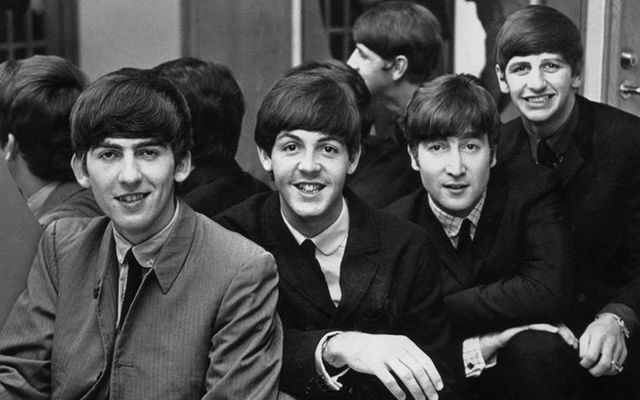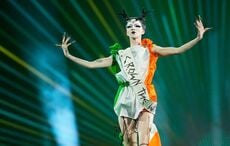A new Northern Irish podcast series explores the Beatles' connections to Ireland and asks whether the Fab Four can be considered adopted sons of the Emerald Isle.
"Give the Beatles Back to the Irish" launched on BBC Radio Ulster on Sunday, November 20, exploring the deep Irish roots of the famous band.
The band certainly considered themselves Irish, with John Lennon telling reporters that "we're all Irish" after landing at Dublin Airport in 1963.
Beatle fans Steven Cockcroft and Jason Carty explored the band's Irish roots in the first episode of the series and also looked back on their debut live appearance in Dublin in 1963.
The second episode, entitled "In Our Life", looks back on legendary live shows in Belfast in 1963 and 1964.
The remaining two episodes of the four-part series uncover tales of "long hard nights in Irish castles" and examine the controversial political stance that some Beatles members adopted during the Troubles, while also examining the band's relationship with legendary Irish broadcaster Gay Byrne.
All four episodes are available to download from BBC Sounds now.
All four members of the Beatles have Irish connections, with John Lennon's great-grandfather James born in County Down and his great-grandmother Elizabeth Gildea born in Omagh. John penned the protest song "Sunday, Bloody Sunday" with his wife Yoko Ono in 1972 after members of the British Army's Parachute Regiment killed 14 unarmed protesters in Derry.
John Lennon also bought Dornish Island off Ireland's west coast for £1,700 in 1967 and made plans to retire on the island after finishing his musical career, sending over a psychedelically-painted gypsy caravan by helicopter. However, he would sadly never realize his dream to retire on the island after being shot dead in New York in 1980.
Paul, meanwhile, boasts Irish connections through his maternal grandfather Owen Mohan, who was from Tullynamallow in County Monaghan. Paul felt very strongly about his Irish roots and penned the song "Give Ireland Back to the Irish" in 1971 during the Troubles in Northern Ireland.
Paul also made use of Ireland's convenient driving license system in the 1960s after being stripped of his UK license for repeated speeding offenses.
Practically anyone living in Ireland in the 1960s could obtain an Irish license by simply applying for one and Paul managed to do just that, providing a Dublin address in the paperwork.
Ringo is the least Irish of the four members but still boasts familiar ties with County Mayo, while George's ancestors were landowners in County Wexford until Oliver Cromwell stripped them of their land during his conquest in the 17th century.
The Beatles' Irish story is explored in full in the new podcast, which launched on BBC Radio Foyle and BBC Radio Ulster on November 20.




Comments